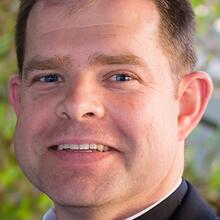On May 7, 10 days after the celebration of the anniversary of their nation’s first democratic elections in April 1994, South Africans went to the polls in the first vote since the death of Nelson Mandela last December. The African National Congress gained a 62 percent majority to retain power for another five years. The party’s margin of victory was down slightly from the last election in 2009, when the A.N.C. received 66 percent of the vote.
Though the governing party did not change, this election revealed significant shifts in South African politics and identity. Gains by the main opposition party, the Democratic Alliance and the ascension of a new group, the Economic Freedom Fighters, will increase pressure on the A.N.C. to root out corruption and address the economic grievances of poor South Africans and the nation’s growing middle class.
The scandals that have rocked the A.N.C. leader Jacob Zuma’s presidency did not persuade most voters that it was time for a new governing party. Weeks before the election the public protector found Zuma had “benefitted unduly” in a way “inconsistent with his office” from state funded improvements to his private house in Nkandla and ordered that he pay back the money.
Despite the fact that people are visibly unhappy with Zuma (he was booed at Mandela’s funeral, while President Obama was given a standing ovation), many maintain an instinctive loyalty to the party that fought to end apartheid. Some claim they are voting for the party, not for Zuma. It is also the case that for many black South Africans, there is no viable black-led opposition party to the A.N.C. While a few black-led parties have emerged (some founded by disgruntled ex-A.N.C members), they have not managed to earn voter confidence. Helen Zille, a white woman, leads the Democratic Alliance.
The A.N.C.’s victory was no surprise, but the results do signal a few notable developments. The rise of the Economic Freedom Fighters, led by an ousted A.N.C. youth leader, Julius Malema, complicates the political spectrum. Malema’s party, formed last year, gained about 6 percent of the vote and became the official opposition to the A.N.C. in one province. Malema appeals to poor, unemployed black youth and a number of frustrated people in the middle class. In the past, the only real opposition to the ruling party came from the D.A. With the rise of the E.F.F., the A.N.C. will face pressure from new quarters in parliament. Malema’s radical economic platform of nationalizing mines, taking land back without compensation and raising the minimum wage by 400 percent will continue to earn him support.
Another significant shift occurred in Gauteng, the country’s most populous province and its commercial hub. In 2009 the A.N.C. won 64 percent of the vote there and the D.A. 22 percent. In 2014 the A.N.C got 55 percent, the D.A. 31 percent and the newly founded E.F.F. 10 percent. This suggests an important dynamic: a change from racial political identities to class political identities is taking place.
Despite the key role of the church in the provision of health care and education, Catholic leaders have found engagement with the A.N.C. increasingly difficult. There will likely be no change in the government’s policies on access to abortion, the use of condoms to prevent H.I.V. infection and same-sex marriage. But in the changing political landscape, the church may find new allies in its fight against poverty, unemployment (now around 20 percent) and political corruption. With the E.F.F. in parliament, the A.N.C. cannot afford to ignore these issues.








